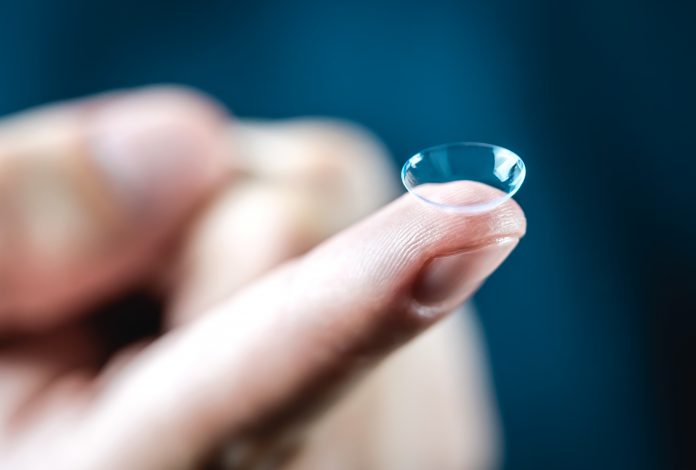Alastair Lockwood, ophthalmologist and eye health specialist at Feel Good Contacts, explains how to minimise the risks of developing glaucoma in later life, and for lens wearers, how to ensure you are wearing them most effectively
With the latest statistics suggesting that around 1 in 10 UK adults now wear contact lenses on a regular basis, questions still remain around their use and the potential implications they could have on long term eye health and in developing conditions such as glaucoma in later life.
What is glaucoma?
Glaucoma is one of the most common causes of irreversible blindness. It is where the optic nerve (the electrical cable that carries information from your eye to your brain) degenerates more quickly than it should, usually because the pressure within the eye is too high.
Our brains are able to compensate for the natural degeneration so we have little awareness of disease progression however this means there are often no symptoms until the disease is very advanced, and we cannot (yet!) rejuvenate a human optic nerve.
Why does it happen?
There are different reasons why the eye pressure can increase, indeed we do need an eye pressure otherwise our eyes would collapse like a balloon with no air in. There is, therefore, a continuous circulation of fluid inside the eye, and pressure rise is usually gradual and caused by increased resistance of drainage of fluid from the eye into the bloodstream.
More rarely, the eye pressure can rise because the lens inside the eye runs out of space (the lens is one of the few things that continues growing throughout our life like our hair and nails). If this happens then the pressure rise can be very abrupt, high and painful – acute angle closure glaucoma.
Are there any symptoms?
It’s important to note that a lot of people who suffer from glaucoma don’t experience any symptoms early on, which is why regular eye checks are so important. The general recommendation is to visit your optician at least every two years for an examination for a full health check with prescription review, and at least yearly if there are added risk factors, for example a family history.
In acute angle closure glaucoma the abrupt rise in eye pressure may cause pain, particularly in bright lights, headache, nausea and vomiting as well as vision loss.
What can influence your chances of getting glaucoma?
Unfortunately, there is little that one can do to reduce the risk of developing glaucoma. Having a balanced diet, engaging in regular exercise, and not smoking will reduce the risk of other diseases of the optic nerve.
However, you are more at risk of the disease if you have the following:
- Have a family history of glaucoma
- Are over 40 years of age
- Are short-sighted or long-sighted
- Hypertension
- High blood pressure
- Diabetes
Can you still wear contact lenses?
With new types of contact lenses being developed all the time to assist with different types of vision, more and more people are now choosing to wear them in daily life, however, it’s crucial that they understand how to wear them correctly to minimise any potential risk of eye damage.
Fortunately, there is no research that suggests any link between the use of contact lenses and the chances of developing glaucoma. However, it is important that users do ensure they are wearing their lenses correctly to avoid any risk of infection or irritation depending on the type of lens prescribed to them. Furthermore, if you are taking drops to lower the eye pressure, these need to be applied without the lenses in, and check with your optometrist that the drops are compatible with the type of lenses you use.
Ten golden rules to get the most out of your contact lenses are:
- Double check the prescription on the lens packaging is correct
- Wash and dry your hands before handling your lenses or touching your eyes
- If you wear eye makeup make sure you insert your contact lenses beforehand
- Remove your lenses if they begin to become red or sore
- Use fresh solution to store your lenses
- Dispose of your lenses after the recommended wearing period
- Don’t use tap water to clean your lenses
- Avoid wearing lenses when swimming, bathing or showering (unless you keep your eyes firmly closed)
- Don’t sleep in your lenses (unless advised by your optician)











